‘Soft-power position’: new Senate government representative keys in on non-partisan role as head of bigger team
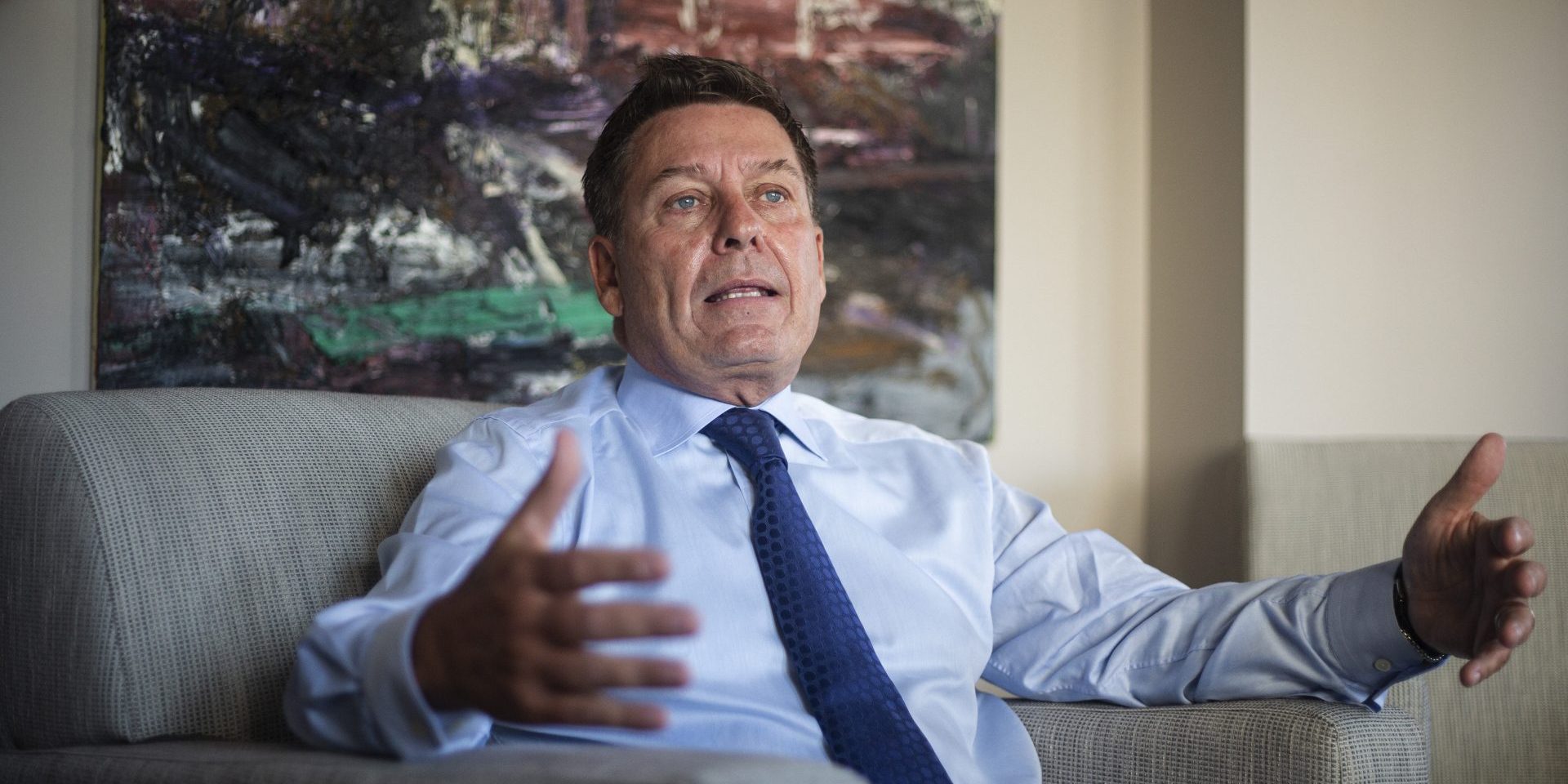
Former Quebec Liberal minister turned government representative in the Senate Pierre Moreau says it’s “impossible” to whip votes in the Red Chamber, and it’s not his job to be a partisan voice for the Liberals, as he readies the body for an “ambitious legislative agenda.”
“I’m the representative—and this word is very important—I’m the representative of the government. It doesn’t mean I’m a Liberal. I’ve never been a federal Liberal in my life,” said Moreau (The Laurentides, Que.), who was appointed to the Senate on Sept. 10, 2024.
Ten months later, the Senator took over the post leading the Government Representative’s Office (GRO) after his predecessor, then-senator Marc Gold, reached the mandatory retirement age of 75 on June 30.
Moreau is a seasoned politician with the Quebec Liberal Party. He held a seat in the provincial National Assembly for 15 years after being elected in 2003 and subsequently took on a number of ministerial titles within then-Liberal premiers Philippe Couillard and Jean Charest’s respective governments.
Moreau made it clear, however, that he has no ties to the federal Liberals, pointing out that he even canvassed for Brian Mulroney’s Progressive Conservatives in 1984.
“My role is to explain the position of the government, but I’m not a member of the government,” Moreau emphasized, sitting down with The Hill Times in his office on Sept. 24, a day after the Senate resumed from summer break.
“I don’t see myself as a tough Liberal,” said Moreau, who was a member of the Progressive Senate Group (PSG) from November 2024 until his appointment.
“I’ve never been a federal Liberal, and … maybe in the rest of Canada it’s not as well-known as it is in Quebec, but there’s a huge difference between a Quebec Liberal Party and the Canadian Liberal Party.”
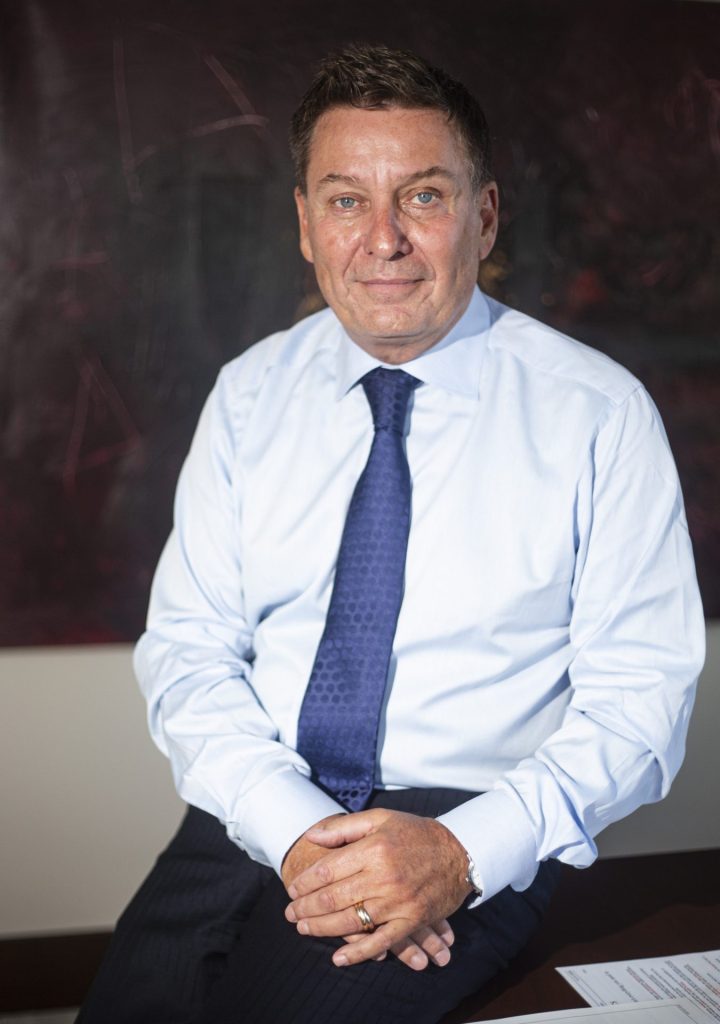
Moreau will be leading a team of four other Senators in the GRO—double the number who worked under Gold. Ontario Senator Sandra Pupatello joined the GRO on Sept. 25 as office chair, with Yukon Senator Pat Duncan taking on the position of deputy government liaison in the same month.
Senator Iris Petten (Newfoundland and Labrador) was named the office’s government liaison in September 2024, and Senator Patti LaBoucane-Benson (Treaty 6, Alta.) remains in her post as the GRO’s legislative deputy.
In an emailed statement to The Hill Times, the GRO said the team has expanded to offer better regional representation. The office also said a larger team will “help deliver” on the government’s “ambitious legislative agenda,” and allow for “greater GRO presence and participation at Senate committees.”
‘It’s impossible’ to whip votes
But Moreau made it clear he doesn’t intend to act as a whip in the Chamber to push legislation through and meet the demands of government’s ambitious agenda.
“It’s impossible,” he said, when asked if he would whip votes, “I don’t have that power here.”
Non-affiliated Senator Marilou McPhedran (Manitoba) suggested in a recent op-ed that Moreau looked “to be a more traditional whip” than his predecessors. But Moreau rejected the characterization.
“The role of the GRO is a soft-power position because the Senator[s] are independent, and because the different groups that form the Senate are independent,” he said, adding that those groups also don’t whip votes amongst themselves.
He said he sees himself as the “link” between the Senate and the government.
“I have to rely on convincing the Senator[s] that such a disposition … should be adopted, and I have to convince the government on some issue[s] that it won’t be possible unless they listen to what the Senator[s] think on a specific bill,” he said.
He said he doesn’t intend to “ram any legislation through the Senate,” but that Canadians have given Prime Minister Mark Carney (Nepean, Ont.) a “mandate” to tackle a “very, very unstable economic” and political situation, and that has to be taken “into consideration.” He also noted that Carney has an “ambitious” view for Canadians.
But Moreau maintained that he doesn’t doesn’t believe his colleagues in the Chamber see his role as a partisan one, either, despite the office’s ties to the government and Moreau’s membership in the Privy Council.
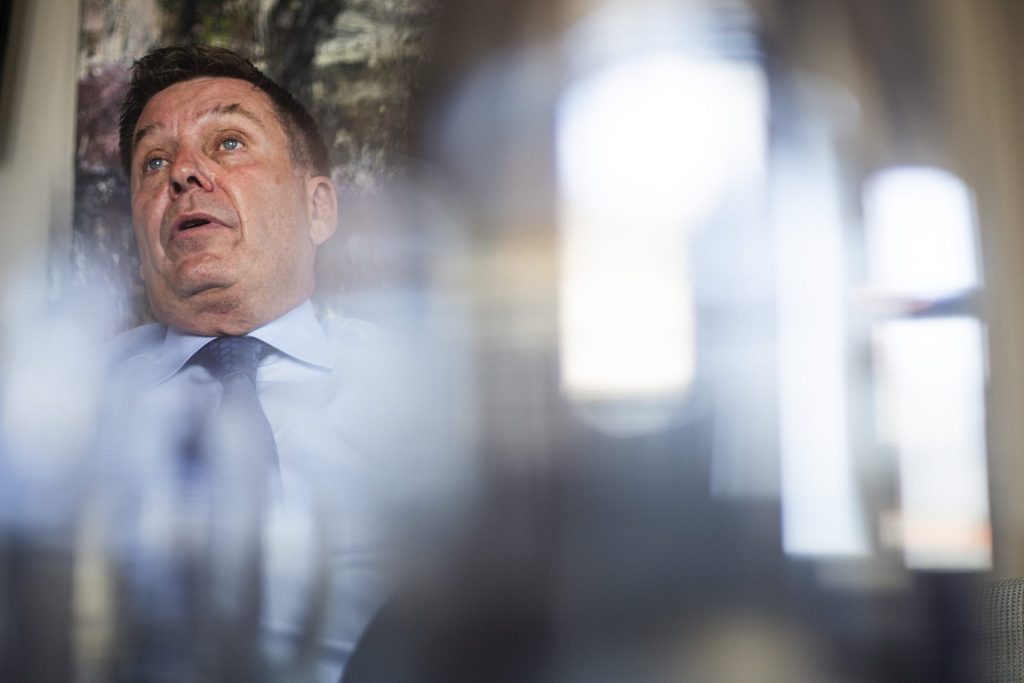
“It’s not the purpose of the job,” said Moreau, who is also a lawyer and managing partner of the firm Bélanger Sauvé.
Moreau said he shares the view of his GRO predecessor Ontario Senator Peter Harder, the first to take on the role under then-prime minister Justin Trudeau, in that “the job is to be a conduit between both chambers.” Harder stepped down from the job in 2020, when Gold took over. Harder now sits with the PSG.
It’s early days for the new representative, but he is already receiving optimistic feedback from the other Senate leadership.
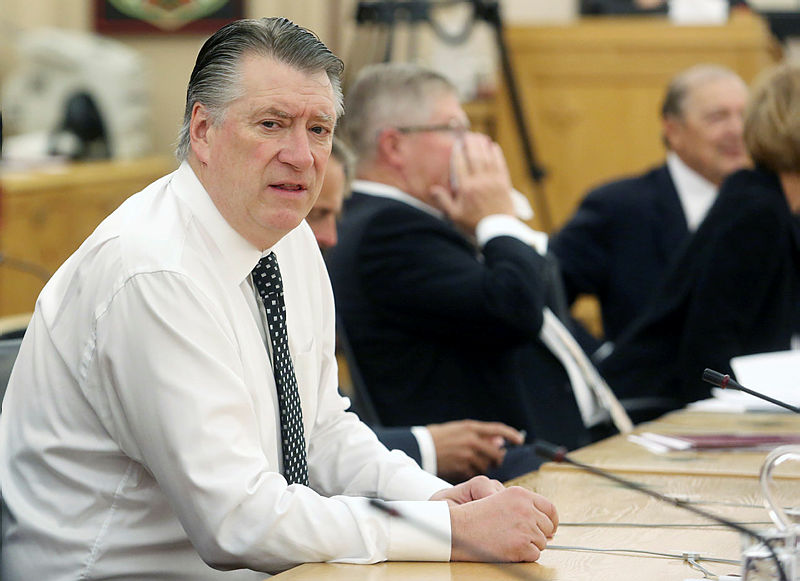
“He performed brilliantly, particularly in Question Period,” Canadian Senators Group (CSG) Leader Scott Tannas (Alberta) told The Hill Times on Sept. 24, the morning after Moreau’s first day in the Chamber as government representative.
Other leaders have raised hopes for collaboration amongst Senate leadership, including with Moreau, with Independent Senators Group (ISG) Facilitator Raymonde Saint-Germain (De la Vallière, Que.) calling the tone in the first Senate leadership meeting—which meets weekly while the Senate is sitting—“collegial” and “efficient.”
Senators ‘cherish’ the independent Senate
This is the first time the House has had a new prime minister since Trudeau first instituted Senate modernization reforms aimed at making it a less partisan body.
Those reforms, which included severing ties with the then-Liberal caucus in the Senate in 2013, lead to the establishment of independent Senate groups, which now dominate the Chamber. The ISG, the largest group in the Chamber, has 43 members; the CSG, 19; and the PSG 17. There are currently three non-affiliated sitting Senators, not including the five in the GRO.
Leading these groups comes with a salary top-up over the base Senator’s salary of $184,800. Moreau has an added $100,000, more than double the $47,300 added onto the salaries of the leaders of the official opposition and the largest group, in this case the ISG, a total that Moreau’s deputy also receives.
Moreau said Senators “cherish” the Senate’s independence, and that he has “no indication” that Carney intends to touch those reforms—nor does he.
“My predecessors, Senator Harder and Senator Gold, shepherded us through a creative decade in the Senate’s evolution. … I want to assure you that as their successor I am aligned with their vision of the Senate as it continues to evolve,” Moreau reiterated in his first speech to the Chamber as government representative in the Senate on Sept. 23.
Still, Moreau told The Hill Times this does not mean the Senate will remain static, and that though the Senate governs itself, ultimately, it’s the government that sets the agenda, which dictates what the Senate works on.
“It’s an institution that has to evolve like the Parliament has to evolve with the new challenges that we have to face,” he stressed. “The geopolitical situation has changed drastically over the last … two or three years, and we have to adapt to that.”
Governments “have an agenda, and at the end of the story, the Senate is there as a sober second thought, … but the agenda is the agenda of the government, and that’s what Canadians voted for,” he added.
Moreau also highlighted the importance of the official opposition in the Senate—the Conservatives—who are the only explicitly partisan Senators remaining in the Red Chamber. The caucus recently had a change in leadership, with Leo Housakos (Wellington, Que.) taking over after Don Plett retired on May 14.
Moreau highlighted that though the group is the smallest in the Senate (after the GRO), having only 12 members among the 100-currently sitting Senators, the Conservatives won 42 per cent of the vote in April’s federal election.
This is something Housakos himself stressed to The Hill Times in a previous interview. The Conservative Senate leader said at the time that he hoped Carney’s government would have more “respect” for the role of the official opposition than Trudeau’s government did.
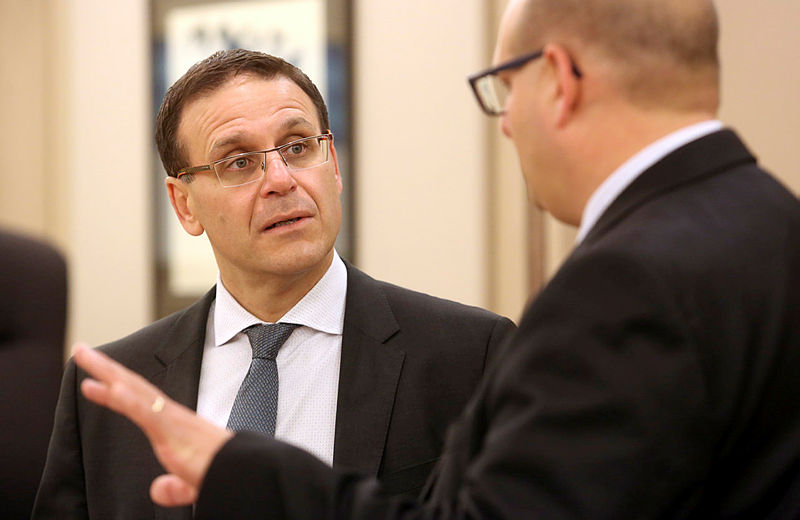
“This institution is based on democracy,” Moreau said of the Senate, “and democracy is all about voters. So, we have to take that into consideration and keep it in view, despite the number of Conservative Senator[s] that we have.”
The Senate’s Conservative caucus recently added three new members after stagnant growing for over a decade.
‘When I’m asked to serve, I serve’
The right wall of Moreau’s office is decorated with a framed fleur-de-lis flag, which once flew over Quebec’s National Assembly—a gift from Charest. It’s a reminder that Moreau, though new to the Red Chamber, is not out of his element on the Hill.
“Basically, I was a parliamentarian for 15—more than 15 years,” Moreau said, “so, chambers, procedures, and I’d say way of life within the Chamber looks alike, either it’s a provincial legislature or a federal one.”
Moreau acknowledged that his new role brings with it more challenges, as it comes with the added responsibility of being aware of “all the issues concerning the government,” which is needed to respond to Senators in Question Period.
But he made it clear the added responsibility didn’t give him pause in accepting the position when Carney called him to take on the job.
“It’s a good challenge, but I like challenge,” Moreau said. “In my life, I’ve had many challenges, and I like it.”
“Since I’m involved here in the Senate for the next eight years, I want to have a … active participation in the Senate works. And this is a place to have that kind of impact,” said Moreau, whose mandatory retirement comes in December 2032.
The Senator also said he had no hesitation about accepting the position. When asked why, he said simply: “Maybe that’s the way I am. When I’m asked to serve, I serve.”
ewand@hilltimes.com
The Hill Times






 LICENSING
LICENSING PODCAST
PODCAST ALERTS
ALERTS













